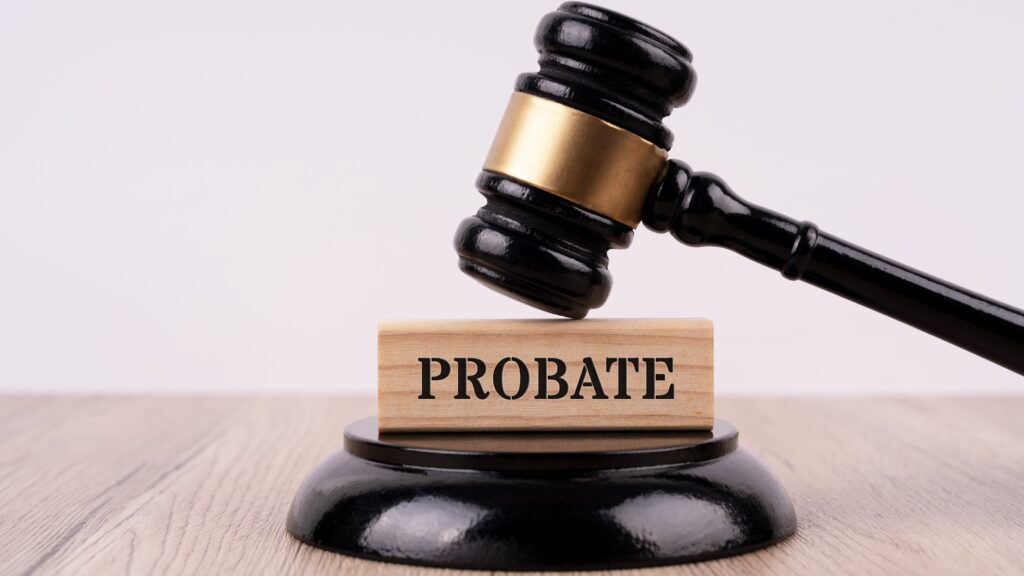Learning how to file probate in Bexar County Texas can feel overwhelming—especially when you’re already dealing with the emotional weight of losing a loved one. Unfortunately, probate isn’t something you can avoid by ignoring it. If the deceased left behind property, accounts, or debt, chances are the courts will get involved. And if you make the wrong move? You could wind up delaying the entire estate process, losing out on assets, or getting pulled into unnecessary legal battles.
That’s why this guide exists—not to bombard you with legal jargon, but to walk you through the probate process step-by-step. Whether you’re handling your parent’s estate, managing your spouse’s affairs, or just planning ahead, understanding how to file probate in Bexar County Texas will help you avoid common mistakes, protect your rights, and save time and money.
Let’s break this down with real-life examples, practical tips, and plain English explanations that you can actually use.
What Is Probate and Why Does It Matter?
Before diving into how to file probate in Bexar County Texas, you need to understand what probate actually is. Probate is the legal process of settling someone’s estate after they die. It involves verifying a will (if one exists), appointing an executor, notifying heirs and creditors, paying off debts, and distributing remaining assets.
In Texas, probate isn’t always required. Some estates qualify for small estate procedures, or assets may transfer automatically via rights of survivorship or payable-on-death designations. But if the decedent owned real estate, significant financial accounts, or left a will, formal probate is often unavoidable—especially in counties like Bexar where real estate holdings are common.

First Steps: Determine If Probate Is Necessary in Bexar County
One of the first questions families ask is, “Do we even need probate?”
Here’s a quick checklist to help you decide:
- Did the decedent own property solely in their name?
- Was there a valid will?
- Are there disputes among heirs?
- Are creditors making claims against the estate?
- Is there no designated beneficiary on accounts or property?
If you answered “yes” to any of the above, you likely need to begin learning how to file probate in Bexar County Texas as soon as possible.
Step-by-Step: How to File Probate in Bexar County Texas
Now let’s break down the filing process in plain, actionable terms.
Step 1: Locate the Original Will and Death Certificate
If the decedent left a will, you’ll need the original signed document—copies are not sufficient. Along with that, obtain a certified copy of the death certificate, which will be required for the court filing and for most financial institutions.
Tip: Do not remove staples from the original will. Courts treat staple removal as possible tampering.
Step 2: Choose the Right Probate Court in Bexar County
Bexar County probate cases are handled in the Bexar County Probate Courts, located at the Cadena-Reeves Justice Center in downtown San Antonio. As of this writing, Bexar County has two specialized probate courts.
You’ll file your application for probate in one of these courts based on the court’s docket availability and sometimes based on random assignment.
Step 3: File the Application for Probate
Here’s where how to file probate in Bexar County Texas becomes very procedural. Your attorney—or you, if filing pro se—must submit a probate application to the correct probate court. This petition includes:
- Name of the decedent
- Your relationship to the decedent
- Date and place of death
- Statement of jurisdiction (residency in Bexar County)
- Whether there’s a valid will
- Request to appoint an executor or administrator
Once submitted, there’s a mandatory waiting period of at least 10 days before the court will set a hearing.
Step 4: Attend the Probate Hearing
At the scheduled hearing, the judge will verify the will’s validity (if applicable), confirm the death, and appoint a personal representative (executor or administrator) to handle the estate.
If the court determines everything is in order, it will issue Letters Testamentary or Letters of Administration—official documents that authorize the executor to act on behalf of the estate.

Step 5: Notify Creditors and Heirs
This step is often mishandled. Texas law requires that all known creditors be notified. You must also publish notice to unknown creditors in a local newspaper, typically the San Antonio Express-News.
Heirs and beneficiaries should also receive formal notice. Failing to follow proper notice procedures is one of the top mistakes people make when learning how to file probate in Bexar County Texas.
Step 6: Inventory and Appraisal of Estate Assets
Within 90 days of appointment, the executor must file an inventory, appraisement, and list of claims with the probate court. This includes:
- Real estate
- Bank accounts
- Vehicles
- Personal property
- Outstanding debts
An appraiser or financial professional may be required if the estate includes business interests, rare assets, or disputes over value.

Step 7: Settle Debts and Distribute Assets
After debts, taxes, and administrative costs are paid, the executor can distribute remaining assets according to the will (or by Texas intestacy law if no will exists). This must be done carefully, with detailed accounting.
Common Mistakes When Filing Probate in Bexar County
Even with good intentions, it’s easy to get tripped up. Let’s look at the most frequent mistakes made during theprobate process and how to avoid them.
Mistake #1: Filing in the Wrong County
Probate should be filed where the decedent lived or owned property—not where the executor resides. Filing outside of Bexar County when the deceased was a San Antonio resident could cause delays, or even lead to case dismissal.
Mistake #2: Missing Deadlines
Whether it’s the 90-day deadline for inventory or the 10-day waiting period for the hearing, failing to follow probate timelines creates headaches. Courts may fine the executor or require a formal accounting for every missed deadline.
Mistake #3: Not Hiring a Probate Attorney
While Texas allows individuals to represent themselves, probate law is complex. Filing errors, missed creditor claims, or poor documentation can result in personal liability. An experienced probate attorney in Bexar County understands local rules, judge preferences, and filing quirks.
Mistake #4: Mismanaging Assets
Executors have a fiduciary duty. That means you’re legally obligated to manage the estate responsibly. If you fail to safeguard assets, pay taxes, or keep proper records, heirs can sue you personally.
Real-Life Example: When DIY Probate Goes Wrong
James tried to probate his mother’s estate alone to save legal fees. He filed late, used a copy of the will, and forgot to notify creditors. Six months in, the court rejected his application. The bank froze accounts, and the family spent over a year fixing the mess—paying double what an attorney would’ve cost.
Knowing how to file probate in Bexar County Texas isn’t just about paperwork—it’s about protecting your loved one’s legacy.
Alternatives to Traditional Probate in Bexar County
Not every estate requires full probate. Some families qualify for simplified options:
Muniment of Title
If the will is valid, there’s no debt (other than mortgage), and there’s no need to appoint an executor, the court may approve a Muniment of Title. This allows direct transfer of assets like real estate—without full administration.
Small Estate Affidavit
If the estate is worth less than $75,000, not including homestead property, and there’s no will, heirs may use a Small Estate Affidavit. This is faster and cheaper, but not all assets qualify.
Affidavit of Heirship
For real property owned without a will, heirs can file an Affidavit of Heirship, especially if the estate is otherwise uncontested. It avoids probate but may limit future title transfers unless done properly.

How Long Does Probate Take in Bexar County?
Most people assume the process is quick, but probate can take six months to a year, or longer if complications arise. Factors include:
- Disputes among heirs
- Missing or contested wills
- Business ownership
- Creditor claims
- Tax complications
With a clear will and no disputes, probate in Bexar County can be relatively efficient—often completed in 6 to 9 months.
Do You Need a Lawyer to File Probate in Bexar County?
Technically, no. But practically, yes—especially if:
- The will is contested
- The estate has substantial debts or assets
- There’s no will at all
- You’re not familiar with court procedures
A Bexar County probate attorney understands the local court’s expectations, preferred formats, and can often expedite filings by avoiding common errors.

Final Thoughts: Learning How to File Probate in Bexar County Texas the Right Way
Probate is one of those legal processes that seems simple—until you’re in the middle of it. From court hearings to filing notices and managing complex family dynamics, there’s a lot to juggle. But with the right approach, tools, and guidance, you can make the process manageable—and avoid costly mistakes.
Whether you’re an executor trying to do the right thing, a spouse managing your late partner’s estate, or a child honoring your parent’s wishes, learning how to file probate in Bexar County Texas is a responsibility that deserves care, patience, and preparation.
And if it feels like too much? That’s okay too. Reaching out to a probate attorney isn’t just about avoiding legal risks—it’s about peace of mind for you and your family.








